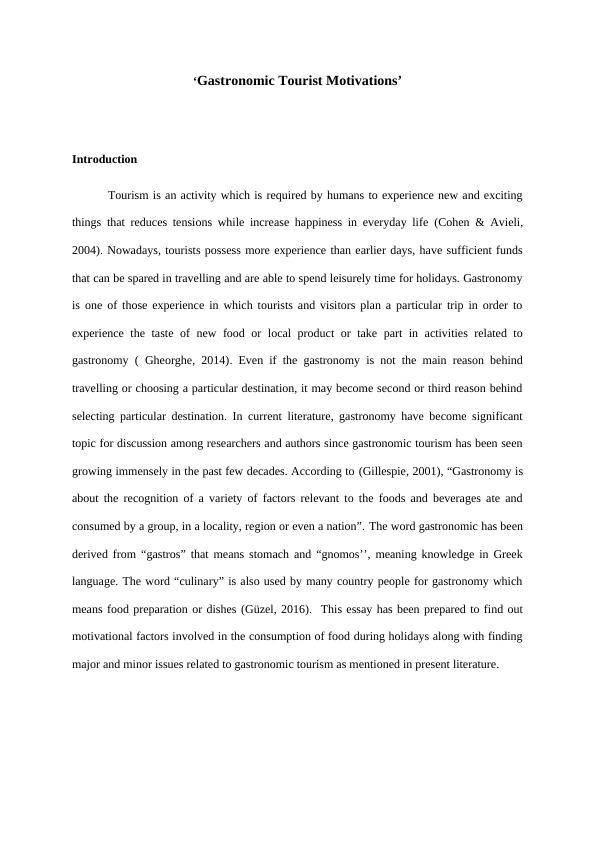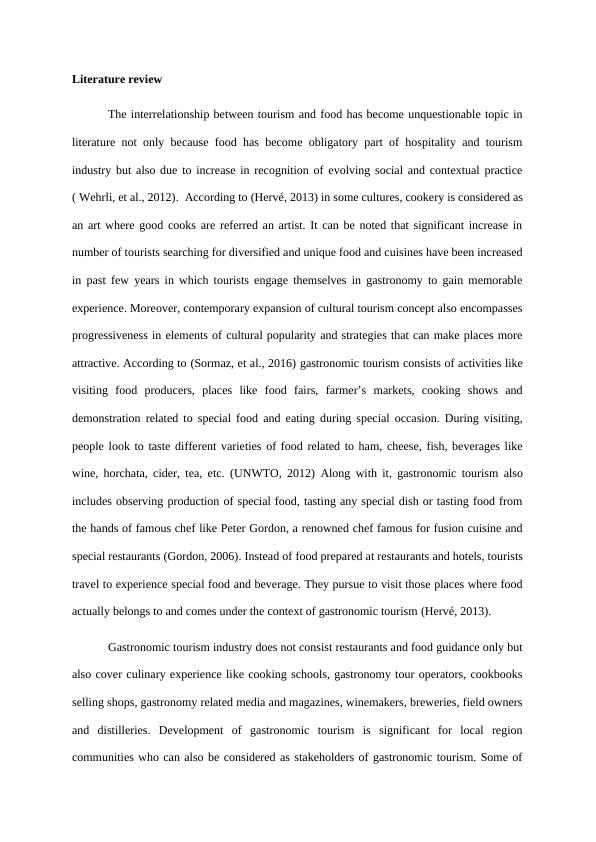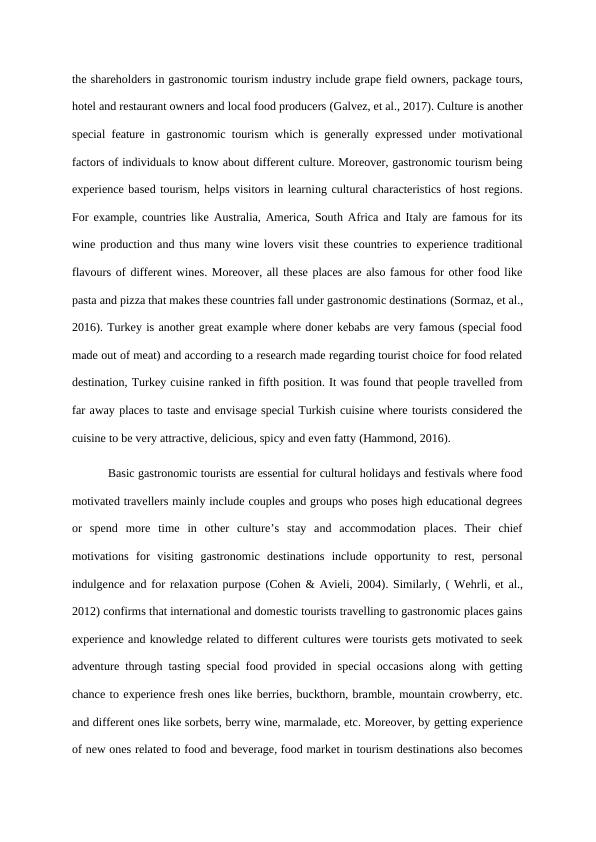Gastronomic Tourist Motivations: A Literature Review
10 Pages2724 Words240 Views
Added on 2023-06-06
About This Document
This essay explores the motivational factors involved in the consumption of food during holidays and the major and minor issues related to gastronomic tourism as mentioned in present literature. The interrelationship between tourism and food has become an unquestionable topic in literature, and gastronomic tourism has become a significant topic for discussion among researchers and authors since it has been seen growing immensely in the past few decades.
Gastronomic Tourist Motivations: A Literature Review
Added on 2023-06-06
ShareRelated Documents
End of preview
Want to access all the pages? Upload your documents or become a member.
The higher consumer satisfaction levels
|6
|978
|18
Gastronomy Tourism: A Study on Northern Ireland
|21
|5920
|232
The Role of Tourism in a Cultural Context
|10
|3430
|55
Gastronomy: A Study of Food and Culture
|12
|3945
|154
Hospitality and Gastronomy
|17
|5149
|51
Gastronomy and Culinary Tourism: Exploring the Link with Cultural Tourism
|14
|4202
|208



